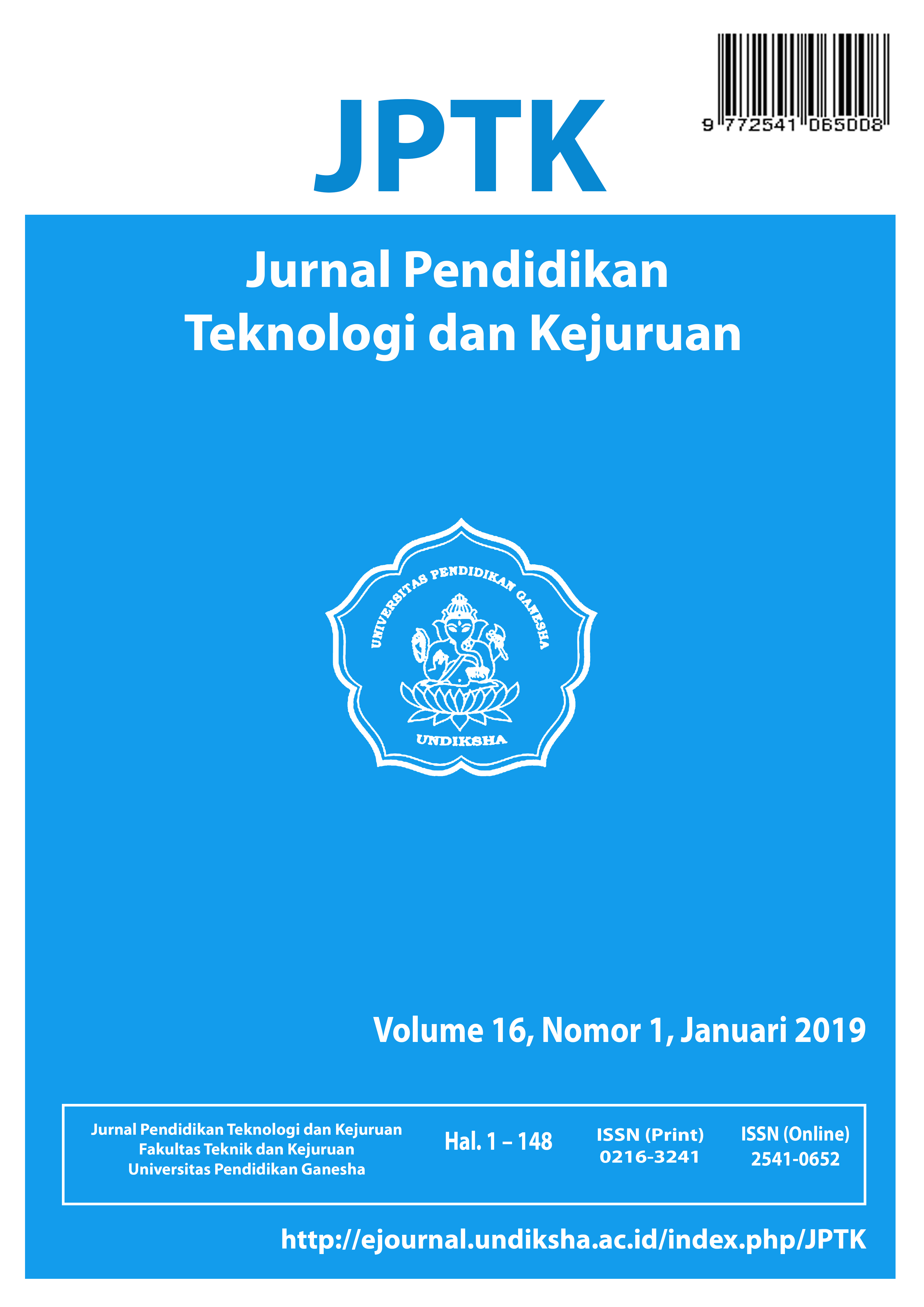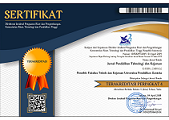EVALUASI USABILITY PADA SISTEM INFORMASI PERMOHONAN KENDARAAN DINAS (SIMONAS) PT. PLN (PERSERO) UNIT INDUK DISTRIBUSI BALI UP3 BALI UTARA SESUAI ISO 9241-11 DAN EIGHT GOLDEN RULES
DOI:
https://doi.org/10.23887/jptk-undiksha.v16i1.17062Abstract
SIMONAS atau Sistem Informasi Permohonan Kendaraan Dinas adalah layanan untuk mengelola peminjaman mobil dinas di PT PLN (persero) Unit Induk Distribusi Bali UP3 Bali Utara. SIMONAS perlu dilakukan suatu evaluasi untuk mengetahui tingkat usability yang berguna untuk mengoptimalkan layanan. Metode evaluasi yang digunakan adalah usability testing berbasis ISO 9241-11. Kuisinoner yang digunakan untuk mengukur kepuasan dalam penelitian ini adalah kuesioner SUS. Teknik Performance Measurement dan Restropective Think Aload digunakan untuk mengukur atribut efektivitas dan efisiensi. Subjek dalam penelitian ini adalah pegawai di PT PLN (persero) Unit Induk Distribusi Bali UP3 Bali Utara. Berdasarkan hasil penelitian menunjukkan bahwa: (1) usability testing layanan SIMONAS memiliki tingkat efektifitas dengan rata-rata Completion rate 83,31% dalam kategori efektif, dan efisiensi diukur menggunakan persamaan time basse efficiency dan overall relative efficiency, serta tingkat kepuasan dalam kategori tingkat penerimaan pengguna masuk dalam kategori marginal, Tingkat grade skala masuk dalam kategori D, dan Adjektif rating masuk dalam kategori good. (2) Rekomendasi perbaikan disesuaikan terhadap saran yang diperoleh dari teknik RTA dan teori Eight Golden Rules yang dilanggar.Downloads
Published
2019-01-30
Issue
Section
JPTK
License
Authors who publish with the JPTK agree to the following terms:- Authors retain copyright and grant the journal the right of first publication with the work simultaneously licensed under a Creative Commons Attribution License (CC BY-SA 4.0) that allows others to share the work with an acknowledgment of the work's authorship and initial publication in this journal
- Authors are able to enter into separate, additional contractual arrangements for the non-exclusive distribution of the journal's published version of the work (e.g., post it to an institutional repository or publish it in a book), with an acknowledgment of its initial publication in this journal.
- Authors are permitted and encouraged to post their work online (e.g., in institutional repositories or on their website) prior to and during the submission process, as it can lead to productive exchanges, as well as earlier and greater citation of published work. (See The Effect of Open Access)












